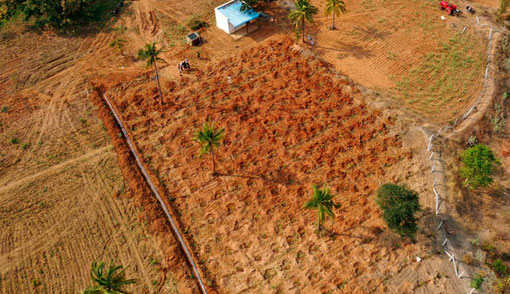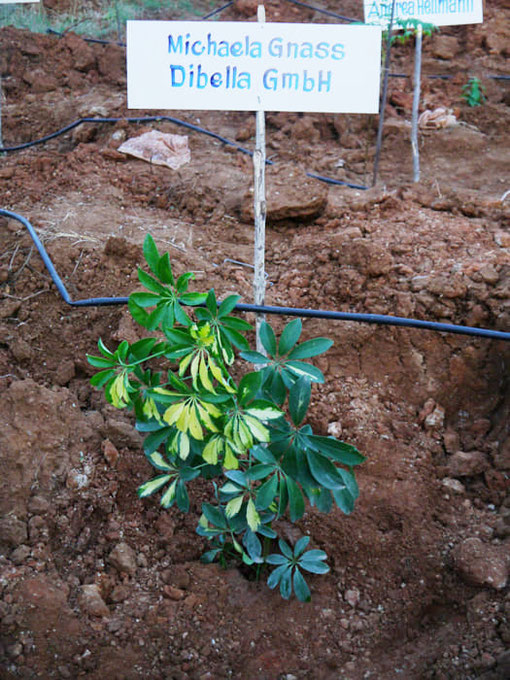
Aalten, February 2019: With the Dibella reforestation project in India, the company is realizing its declared climate goals and enabling third parties to take advantage of carbon dioxide (CO2) compensation. At the same time, the steadily growing forest is to actively contribute to climate and environmental protection in the state of Tamil Nadu.
As part of its sustainability philosophy, Dibella has committed itself to offsetting the CO2 emissions caused by its business trips. To this end, the company has initiated a reforestation project in Nachikuppam in the Indian state of Tamil Nadu. A species-rich forest with up to 10,000 trees is being created on a fallow area of around 8.5 hectares. After just five years they will be able to reduce up to 80 tonnes of CO2 and after ten years up to 310 tonnes of the harmful greenhouse gas.

Active contribution to climate protection
The location for the reforestation project is directly linked to the sustainable "Dibella+" product line, which is made from Indian organic cotton. "In our audits, the organic farmers tell us about rainfall of unknown proportions, which has increased in recent years," says Ralf Hellmann, CEO of Dibella group. Rivers overflow their banks at unimaginable speed and flood the surrounding fields. "Climate change has arrived in India. With our forest project, we want to make an active contribution to climate and environmental protection.”
A forest for Participants
After completion of the preparatory work at the beginning of 2018, 4,000 tree seedlings have already been planted. Within the planned duration of the project, an additional one thousand young trees are to be planted each year. Their planting as well as the care of the forest is in the hands of the farmer family Baireshan, who come from the region and generate an additional income.
The Dibella reforestation programme is open to the participation of third parties: customers, partners and suppliers can offset their CO2 footprint with their own piece of forest. The project has already set a precedent. Dibella has taken precautions to ensure that it can continue to grow: the forest area is expandable.